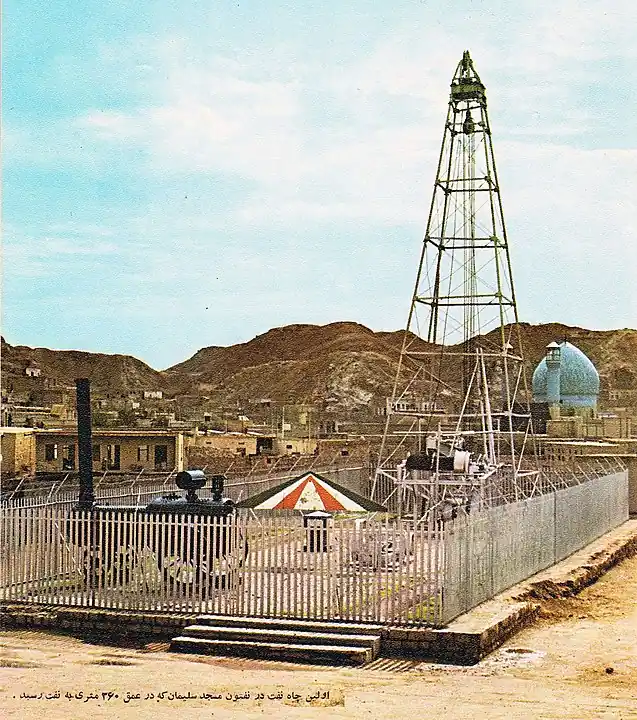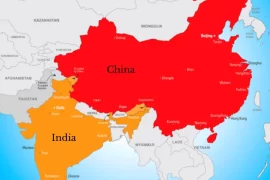Oil reserves are estimated amounts of crude oil located in a specific region. These reserves are highly valuable and important for any country due to the limited quantity and high value of oil. Here are the top three countries with the largest oil reserves in the world:
Venezuela: World’s top oil reserve
Venezuela has the largest oil reserves in the world, with over 300 billion barrels of proven oil reserves.
Most of this oil is located in the Orinoco Belt, which is the largest deposit of petroleum in the world with an estimated capacity of more than 200 billion barrels.
While Venezuela has large oil reserves, it ranks lower in oil production due to the fact that its crude oil is heavy and requires a significant investment in technology, manpower, and refineries to extract.
Additionally, political unrest and issues have hindered Venezuela’s potential in the oil industry.
However, since 2020, Iran has been working with Venezuela to recover and maintain its refining facilities, which has helped improve the local oil industry.
Statistics
Proven crude oil reserves (million barrels): 303,468
Value of petroleum exports ( million $): 8,816
Crude oil production (1,000 b/d): 636
Refinery capacity (1,000 b/cd): 2276
Output of petroleum products (1,000 b/d): 270
Oil demand (1,000 b/d): 232
Crude oil exports (1,000 b/d): 448
Exports of petroleum products (1,000 b/d): 67
Source: OPEC, Annual Statistical Bulletin, 2022
*Above data covers 2021
*b/d = barrels per day
*b/cd = barrels per calendar day
Saudi Arabia, the top oil exporter
Saudi Arabia has the second-largest proven reserves of crude oil, with 267.192 billion barrels.
Oil was discovered in Saudi Arabia in 1938 at the Dammam oilfield. The oil was found at a depth of 1,440 meters.
The country has a higher oil production rate than Venezuela, with an average of over 9,125,000 barrels per day in 2021.
This is because most of the oil in Saudi Arabia is more cost-efficient and profitable to extract than the heavy oil found in Venezuela.
Currently, Saudi Arabia is the second largest producer of oil in the world, following the United States.
But, it is the largest oil exporter in the world, with a significant portion of its economy relying on oil exports.
The country has been able to achieve this through the help of conglomerates such as Saudi Aramco, which have focused on oil production in the region.
Statistics
Proven crude oil reserves (million barrels): 267,192
Value of petroleum exports (milllion $): 286,502
Crude oil production (1,000 b/d): 9,125
Refinery capacity (1,000 b/cd): 3,327
Output of petroleum products (1,000 b/d): 2,548
Oil demand (1,000 b/d): 2,966
Crude oil exports (1,000 b/d): 6,227
Exports of petroleum products (1,000 b/d): 1,344
Source: OPEC, Annual Statistical Bulletin, 2022
*Above data covers 2021
Iran, the third largest oil reserve
Iran has the third-largest oil reserves in the world, with 208.6 billion barrels of proven reserves.

This accounts for about 16% of the global proven reserves. Iran has been a top producer and exporter of oil for many years.
The country has plans to invest $500 billion in its oil sector by 2025 in an effort to increase the utilization of its massive reserves.
The Masjid-i-Solaiman oil well, located in the Khozestan province of Iran, was the first oil well in the Middle East. It was drilled in 1908 and was the first oil well in the country.
Iran has more than 200 reservoirs and 102 fields, with 78 fields currently active.
The increased investment could make Iran a major player in the global oil market.
Statistics
Proven crude oil reserves (million barrels): 208,600
Value of petroleum exports ( million $): 25,313
Crude oil production (1,000 b/d): 2,392
Refinery capacity (1,000 b/cd): 2,202
Output of petroleum products (1,000 b/d): 1,673
Oil demand (1,000 b/d): 1,777
Crude oil exports (1,000 b/d): 763
Exports of petroleum products (1,000 b/d): 333
Source: OPEC, Annual Statistical Bulletin, 2022
*Above data covers 2021







